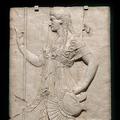010 Mare
010 Meer
010 Sea
010 mar
010 Zee
010 Mar
010 Море
Mare supra Italiam situm a Romanis superum appellatur.
The situation of Italy, is called by the Romans, that leads on high above the sea.
Sicilia Sardiniaque in mari infero sitae sunt.
Sicily and Sardinia, located in the lower sea.
Navibus homines in maria penetrant.
Ships to penetrate into the seas.
Coelum maris inferi salubre est.
Der Himmel ist ein Meer der Hölle.
Heaven to hell, saving the sea.
Scipio a Poenis ad flumen Ticinum proelio equestri superatus est.
Scipio crossed over from the Carthaginians to the river, Ticinum, the battle was commenced and was overcome.
Vectigalia saepe magna et gravia sunt.
Your taxes are often large and cumbersome.
A Livio egregia facta fortium virorum celebrata sunt.
A Livio noble deeds of the brave sacrifices.
Marius ignobili genere natus est.
Marius was born in a low family.
Ingens multitudo piscium in omnibus maribus est.
The immense number of fish in all males.
Amicorum studia paria sunt, pares sunt mores, pares sunt voluntates.
Die Interessen der Freunde sind gleich, ihre Manieren sind gleich, ihre Willen sind gleich.
Among friends are equal, the studies states, are equal, the practices are, they are peers, the desires of the.
A bono et honesto et sapienti viro laudari summa laus est.
A good character and praised the wise man of the highest merit.
Ab Atheniensibus saepe pro libertate omnium civitatum Graeciae pugnatum est.
Athenians have often fought for the liberation of the whole of Greece.
Vita brevis, ars longa.
Life is short, art is long.
Studiis artium bonarum homines a fera et immiti vita ad humanitatem vocati sunt.
Durch das Studium der schönen Künste wurden die Menschen von einem wilden und gnadenlosen Leben in die Zivilisation berufen.
Studies in liberal arts and the harsh life of humans from the wild to civilization are invited.
In regionibus septemtrionalibus hieme per longum temporis spatium nox est.
In the countries of northern winter for a long period of time is night.
Aestate in regione nostra spatium noctium breve est.
In our country, in the summer nights, the distance is short.
In media parte multarum urbium arx est in colle sita et muris firmata.
At the heart of the strength of the side of the walls of many of the cities, and is located on the hill of the citadel.
Hieme proxima multae arbores horti nostri onere nivium curvatae sunt.
In the winter, the snow next to the burden of our many trees of the garden, they are curved.
In cacuminibus Alpium et reliquorum altorum montium nix aeterna est.
At the top of the high mountains of the Alps and the remaining snow is forever.
Aqua fontium gelidorum, viatores, aestate calida recreamini !
Reisende, erfrischen Sie sich im heißen Sommer mit dem kalten Wasser der Quellen!
Water flowing cold water, passengers, hot summer refreshing!
Ingens est longitudo pontium ad urbem Vindobonam in flumine Danuvio factorum.
Über die Donau bis zur Stadt Wien wurden zahlreiche Brücken gebaut.
The factors of the length of the bridges of the Danube in the river to the city of Vienna, is the great.
Saepe senex pauper est, qui iuvenis dives fuit.
Oft ist ein alter Mann arm, der in jungen Jahren reich war.
Often, the old man is poor and the rich young man.
Romulus cum grege fortium iuvenum in regiam intravit et Amulium, fratrem avi, regno privavit.
Romulus betrat mit einer Gruppe tapferer junger Männer den königlichen Palast und entzog Amulius, dem Bruder seines Großvaters, das Königreich.
Of young men he went in into the palace of the mighty men, and with the flock, out of Amulius, Romulus, brother of the grandfather, the kingdom hath withheld.
Mos senum est vetera tempora laudare, praesentia vituperare.
It is an old, old times praise presence is to blame.
Pueri pauperum hominum saepe melius educantur quam divitum.
Boys poor people are often better educated than the rich.
Beneficia patrum et matrum erga liberos magna sunt.
The benefits of our fathers and mothers toward their children, they are great.
Patrum nostrorum memoria multa, quae nunc vulgaria sunt, nondum nota fuerunt.
Many of our memory, which is now commonplace, but were not yet known.
Viri clari saepe in casa paupere et humili nati sunt.
In deference which are often poor and humble hut born.
Discordia fratribus saepe perniciosa fuit.
Brother, often destructive.
Consuetudine malorum hominum pueri et iuvenes saepe depravantur.
Bad habits of children and young people are often contaminated.

